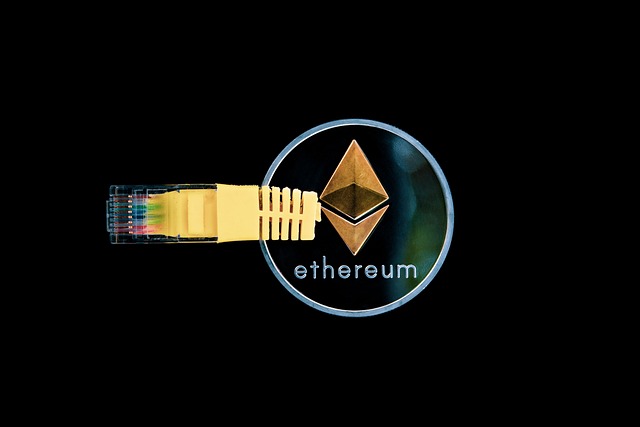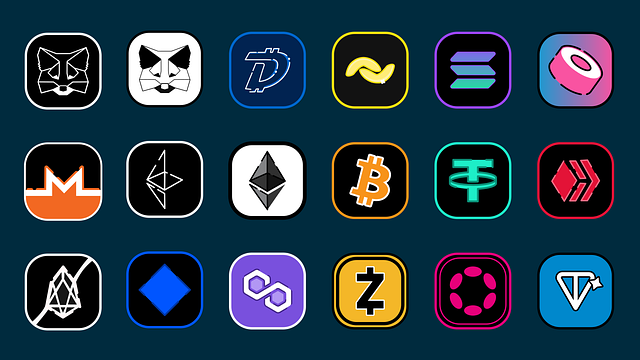Ethereum is a prominent figure in the crypto industry, providing smart contracts, networks where dApps can be created, and complete digital support for NFTs. Although its structure was based on Bitcoin, Ethereum aims to be so much more than a way to transact money. More than a store of value, Ethereum is also constantly improving and adding minor but essential updates. The first and most recent upgrade, the Merge, made the prominent transformation from PoW to PoS that completely changed the dynamic of the network.
However, Ethereum has some difficulties that are challenging to get over. Users are tired of expensive gas and transaction fees, although the TPS (transactions per second) rate is low. At the moment, VISA has a considerably better TPS and isn’t even a competitor.
But Bitcoin isn’t a threat anymore. Ethereum must fear its alternatives that are faster and cheaper and have the handle of smart contracts and other similar features. This is Solana, the sol/usdt cryptocurrency of the future.
Table of Contents
What recent data shows
In a recent analysis based on data from Google, it seems like Solana is more requested than Ethereum, so people are eager to find out what it’s about. Solana was more searched, especially in Spain and the Philippines, but Ethereum remains leading in Indonesia, Taiwan, and Morocco.
Moreover, individuals who searched for Solana were also interested in Bonk, the top Solana meme coin that surpassed Pepecoin, and Tensor, a Solana-based NFT. Some say that the increased interest is due to Solana’s increasing token price. This also drove interest in the blockchain platform that many see as similar to Ethereum. At some point, Solana became the fourth-largest token by market cap but came back to its previous stats quite rapidly.
What’s so great about Solana?
In simple terms, Solana is efficient and cheap. But as we expand what Solana can indeed do, we encounter so many possibilities for the crypto market to benefit from. Using the Turbine protocol, Solana transmits data in smaller chunks, simplifying communication between blockchain nodes. It also uses PoH (proof-of-history), making Solana fast and contributing to low fees.
But Solana is unique because it blends PoH with a delegated PoS, a variation of the traditional system. Together, they strengthen the network’s security with an additional layer and provide high scalability by completing computations at an otherworldly speed. This makes it considerably better than Ethereum, which continues to struggle with scalability, security, and decentralization difficulties.
Solana’s transaction processing works like clockwork
Since Solana’s transaction processing is based on a combination of mechanisms, it’s safe to say it does a great job. Usually, for a blockchain to process transactions that fast, it would require a certain centralization level, such as VISA, the multinational payment card service with an average of 1,700 TPS per day. However, Solana manages to maintain decentralization and can sustain 710,000 TPS.
But to withstand such a massive number of transactions, Solana must enhance its security, and it does so by timestamping blocks before they’re added to the chain, defining the blocks, and allowing validators to vote on different blocks and timestamping them.
Still, why isn’t Solana gaining more notoriety?
Solana is superior to Ethereum from many perspectives, from lower transaction fees to faster validation. However, despite its complexity, Ethereum is still investors’ and developers’ preferred tool, even though it can be difficult at times. Solana’s young experience might be one of the reasons, as it was launched in 2020, five years later than Ethereum. Hence, Ethereum already benefits from a massive audience that’s increasing by the day.

At the same time, Ethereum established its brand in the market of DeFi, NFTs, and dApps as the primary tools with which developers and creators can expand their opportunities. On the other hand, Solana’s use cases and applications, including decentralized exchanges, DeFi Web3, and social platforms, are only starting to gain popularity.
Mitigating challenges on Solana
Solana isn’t a perfect blockchain, but it’s got a promising future ahead if it can solve its issues. First, it raises concerns over centralization risks due to the small number of validators who work on the network’s safety. There’s also a concentration of power over large token holders who can influence the network by voting for specific validators. Hence, centralization risks can lead to security breaches, breaking investors’ trust and interest in the project.
Moreover, the uncertain regulatory environment and taxation might contribute to suspicion of the blockchain’s performance. Although Solana is widely appreciated for its impressive features and technology, it doesn’t take much for it to become one of the millions of lost crypto projects on the market.
Which should you choose as an investor?
Investors should eye both Ethereum and Solana for a diversified and robust portfolio, as they’re stable and efficient. However, for those who want high yields, Ethereum is best, whether we talk about investments, trading, or creating a decentralized app. Still, it may not be the best choice for beginners as it’s not that user-friendly and can be challenging to handle.
On the other hand, Solana might be great for novice investors, as it doesn’t involve as many risks as a massive cryptocurrency would do. Of course, income wouldn’t be significant, but a long-term strategy can be the basis for an incredible portfolio. At the same time, Solana has digital assets and ecosystems similar to Ethereum, therefore providing high-quality tools for creators. Solana is Ethereum’s most significant competitor, with low fees, latency, and throughput.
Bottom line
The battle between Solana and Ethereum continues, leaving us wondering which is the winner. Each cryptocurrency and blockchain have distinct features that are incomparable, but when it comes to costs and rapidness, Solana is outperforming Ethereum. Despite its lack of popularity, Solana offers almost everything Ethereum does at a lower price and better speed. However, its biggest issue is the risk of centralization due to a small number of validators. Finally, putting things into perspective, Solana and Ethereum are made for different audiences.
Featured Image by guaxipo from Pixabay




